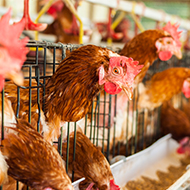Redwings is raising staffing levels to help keep its horses safe.
The equine rescue charity Redwings is preparing for fireworks season by increasing staffing levels at its south Norfolk centres.
There will be additional staff at centres where there aren’t live-in staff to allow for more regular checks on the animals in the charity’s care. The horses will also be provided with extra forage.
The charity knows from its own experiences the harm that nearby firework displays can cause to horses.
In 2016, two ponies at a Redwings sanctuary in Norfolk died after fireworks were set off close by. Sprite, a 19-year-old Welsh pony, was found with severe colic and had to be euthanised, and 25-year-old Percy had to be euthanised after injuring one of his front legs.
Another horse, Cinders, died at the charity’s centre near Harlow, Essex, after fireworks were let off in 2014.
Last year, the charity spent almost £1,500 to bring in staff for additional hours to look after the horses in its care during firework season.
To limit the stress that fireworks cause animals, the charity wants to see the law changed so that fireworks can only be set off as part of licensed events. Staff from Redwings will be attending a Fireworks Working Group for MPs House of Commons 6 December and the charity is supporting the RSPCA’s #BangOutOfOrder campaign.
Lynn Cutress, chief executive of Redwings, said: “As a prey species, horses are naturally fearful of loud noises. When they’re stressed and frightened they can exhibit ‘flight’ behaviours, like galloping to the point of exhaustion or trying to escape their enclosure because they feel unsafe. This can be dangerous for the horse and people who are near them, including potentially road users if horses become loose.
“The financial cost of the extra measures we take during the fireworks season is not insignificant to a charity like ours, but obviously our residents’ welfare is our top priority, and we do everything we can to keep them safe and happy.”
Image (C) Shutterstock



 An Avian Influenza Prevention Zone (AIPZ) has been introduced across Wales.
An Avian Influenza Prevention Zone (AIPZ) has been introduced across Wales.